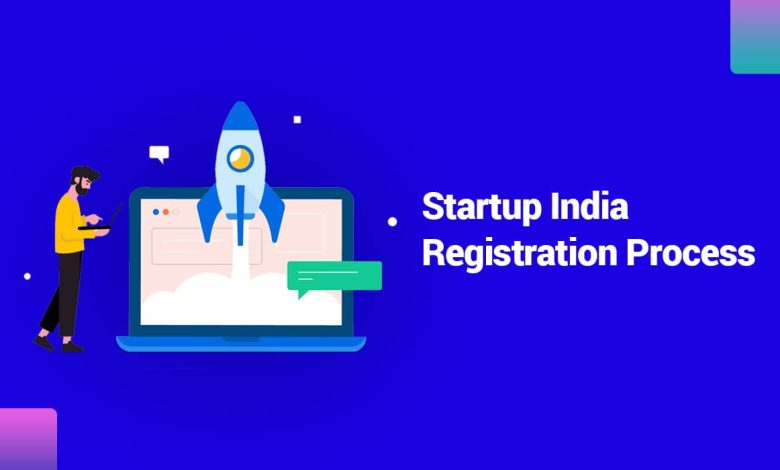Requirements and Process for Startup India Registration

Since the country’s Prime Minister, Narendra Modi, established the Startup India initiative, the number of businesses has exploded.
An increasing number of people are launching their own enterprises’ thanks to government tax advantages, incentives, and assistance. The most noteworthy part is that the vast majority of the businesses are run by young founders and owners. Which speaks volumes about India’s incredible creative talent.
Because they previously lacked government support and had to accomplish everything on their own, individuals threw themselves into it. However, since the initiative began, individuals have become more courageous, knowing that the government will support them. And as a result, they are coming up with new ideas.
Let’s first define what a startup India is? before delving into the details of eligibility and procedure.
The government has launched the Startup India Registration Services to help businesses expand by supporting innovation. By forming a business entity under the StartUp India initiative, startups can take advantage of incentives provided by the DIPP registration. The goal of this strategy is to turn India into a job-provider rather than a job-seeker. The Startup India Scheme recognises only entities that are registered as a Private Limited Company or a Registered Partnership Firm. Furthermore, such a startup must be engaged in activities aimed at improving products. These services, as well as being capable of creating jobs or money. Only an entity that meets the government’s eligibility criteria can register under the scheme. You can apply online using a mobile application or through a DIPP-created portal.
Process For Startup India Registration
-
Incorporate your company
To begin your business, you should first establish a Private Limited Company, Partnership Firm, or Limited Liability Partnership.You must follow all of the standard steps for registering a business, including acquiring a Certificate of Incorporation/Partnership Registration, a PAN, and other legal requirements.
-
Create an account with Startup India.
Once you create a new account, You must register your startup in the portal. The entire procedure is straightforward and can be completed Online Company Registration Simply go to the Startup India website and fill out a form with information about your business. You will get OTP in your email id. This mail will have additional information such as startup user type, name, stage of your startup, and others.
Startups can apply for various acceleration, incubator/mentorship programs, and other challenges on the website after creating a profile, as well as gain access to resources like the Learning and Development Program, Government Schemes, State Policies for Startups, and pro-bono services.
-
DPIIT Accreditation
The next stage is to gain DPIIT (Department for Promotion of Industry and Internal Trade) recognition by setting up an account just on Startup India website.
This recognition allows startups to take advantage of benefits such as access to high-quality intellectual property services and resources, relaxation of public procurement rules, self-certification under labour and environmental laws, ease of company winding up, access to Fund of Funds, tax exemption for three years, and tax exemption on investment above fair market value.
If you’re a new user, click the ‘Acquire Recognised’ button to get DPIIT Recognition. If you already have an account, go to the ‘Dashboard button’ and then ‘DPIIT Recognition.’
-
Application for Recognition
Tap ‘Quick View’ in the Enrollment Description field of this page. Complete the ‘Startup Recognition Form’ and click the ‘Submit’ button.
Also Read: What Are The Qualities Of A Professional Estate Agent Have?
-
Registration Documents
- Certificate of Incorporation/Registration of your business
- Directors’ Contact Information
- In the event of a validation/early traction/scaling stage startup, a proof of concept such as a pitch deck/website link/video is required.
- Details about patents and trademarks (Optional)
- PAN (Personal Identification Number)
-
Number of Recognition
That concludes our discussion.As soon as you apply, you will be assigned an identification code for the business. The certificate of recognition will be granted after all of your documents have been examined, which normally takes two days after you submit your information online.
However, exercise caution when submitting documents. If it is discovered after further verification that the needed document was not uploaded, the incorrect document was posted, or a fraudulent document was uploaded, you will be fined 50% of your startup’s paid-up capital, with a minimum fine of Rs. 25,000.
-
Other Subjects
Patents, trademarks, and/or design registration: If you require a patent for your invention or a trademark for your company, you can easily contact one of the government-approved facilitators. Only the statutory fees will be your responsibility, resulting in an 80 percent fee decrease.
Access to finance has been one of the major obstacles for many entrepreneurs.Due to a lack of experience, security, or proven cash flows, entrepreneurs are unable to attract investors. Furthermore, many investors are put off by the high-risk character of startups, as a large number fail to take off.
The government has established a fund with an initial capital of INR 2,500 crore and a total corpus of INR 10,000 crore over a four-year period to provide financial assistance (i.e. INR 2,500 crore per year). The Fund is structured as a Fund of Funds, which means it will not invest directly in startups, but will instead contribute to the capital of SEBI-registered Venture Funds.
Self-certification under employment and labour legislation: Startups can lower their compliance expenses by self-certifying under labour and environmental rules. Self-certification is available to help companies decrease regulatory load and focus on their core business. Startups have three to five years from the date of formation to self-certify their compliance with six labour laws and three environmental statutes.
Units operating under the 36 white category industries listed on the Central Pollution Control Board’s website do not require permission under three environmental statutes for three years.
Startups are free from paying income taxes for three years. However, they must be certified by the Inter-Ministerial Board in order to receive these benefits (IMB). Startups that were formed on or after April 1, 2016 are eligible for an income tax exemption.






